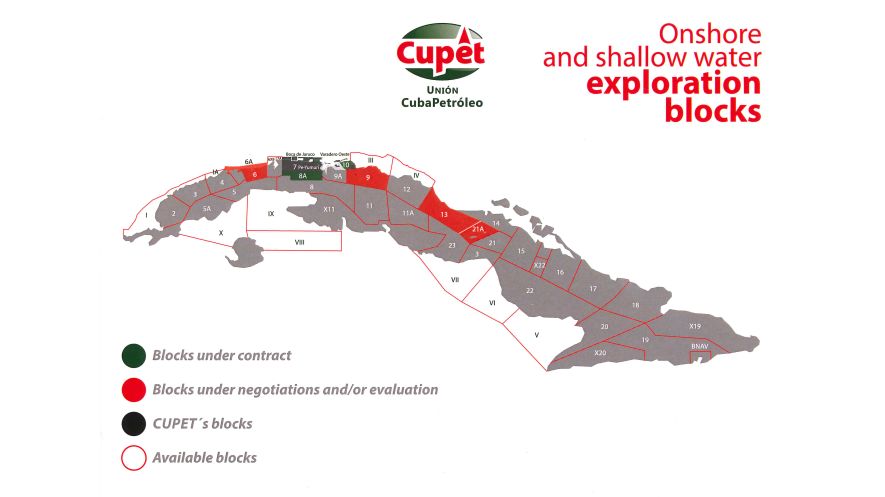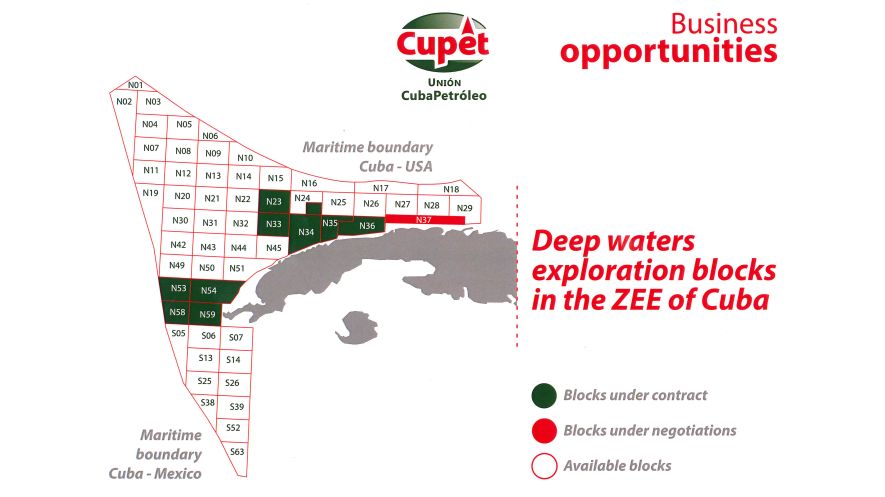By:Quenton Dokken, Ph.D., Gulf of Mexico Foundation, www.gulfmex.org
Organized by the consulting firm Hunt Petty, LP, the SAFE SEAS – CLEAN SEAS conference brought together approximately 130 offshore drilling, policy, and environmental professionals in Havana, Cuba October 19-21 to discuss the challenges and opportunities for offshore drilling in Cuba’s territorial waters. CUPET, the national oil company of Cuba, is looking to expand oil/gas production and recent relaxing of U.S. restrictions on business interactions with Cuba have encouraged U.S. based drilling and service companies to look for opportunities.
The participants were people of stature and authority within their business affiliations and governments, and by all measures, the conference was a success. From discussions of technological advancements post Macondo to embargo policies stemming from the Cuban Missile Crisis of 1962, the discussions were comprehensive and robust.
After opening remarks by Roberto Suarez, Deputy General Director, Uniόn CubaPetrόleo, Jay Hakes, former Director for Research and Policy, National Commission on the BP Deepwater Horizon Oil Spill and Drilling, and James A. Watson, President and Chief Operating Officer, American Bureau of Shipping, presented overviews of the response to the Deepwater Horizon spill. Admiral (ret) Watson was the federal on seen coordinator for the Deepwater Horizon spill response. From this stage, subsequent speakers and panels discussed environmental threats and protection, regulatory frameworks, blowout preventer (BOP) technology, response planning and preparedness, policy, and hydrocarbon production potential.
 Relating to safety and environmental protection, Dr. Lee Hunt noted, “There is an elephant in the room; the existing U.S. embargo that could inhibit safety and environmental protection technology from the U.S. being utilized in Cuba territories.”
Relating to safety and environmental protection, Dr. Lee Hunt noted, “There is an elephant in the room; the existing U.S. embargo that could inhibit safety and environmental protection technology from the U.S. being utilized in Cuba territories.”
A result of the U.S. embargo or “blockade” as the Cubans refer to it, this is a situation that needs to be resolved immediately for protection of both U.S. and Cuba interests.
The marine waters of Cuba and the U.S. are contiguous. The geographical proximity of the coastal zones of the U.S. Gulf of Mexico and south Atlantic to Cuba’s areas of prime offshore drilling prospects demand that the best technology for safety and environmental protection available in the United States be available to drillers working in Cuba. What happens in Cuba’s waters will also happen in the coastal waters of the United States.
Safety and environmental protection are critical objectives for both Cuba and the United States. Robert L. Muse, attorney and policy consultant based in Washington, D.C., reported that there may be language in the Obama administration’s newly issued policies that will allow “safety” and “environmental protection” equipment manufactured in the U.S. to be sold to and utilized by drillers in Cuban waters. Lee Womble, Vice President Sales and Marketing, Cameron Offshore, reported on the advancements made in the design of blowout preventers, the most critical technology to blowout prevention and control. Today’s blowout preventer is a major step beyond what was state-of-the-art at the time of Macondo.
Discussion of environmental concerns went beyond the impacts of the offshore oil and gas industry. Expanding tourism also presents environmental threats. Infrastructure to support increased numbers of tourist will take a toll on natural habitats, fishery resources, and air and water quality.
Maritza García García, General Director, Cuba’s National Center for Protected Areas, presented an overview of Cuba’s extensive protected lands emphasizing commitment to environmental protection. With changes in the U.S./Cuba relationship, the Cuban people will no doubt generate more individual income, but there will be a price to pay. It will be up to them and the Cuban government to determine just how great that price will be.
Following the meeting, participants were treated to a tour of the Habana – Varadero Northern coastal oil and gas exploration, drilling, production and processing facilities. The Great Wall Drilling Company, a Chinese company, hosted the tour group with a visit to its drilling site on the coast east of Havana, the largest ever drilling project in Cuba. The group also visited ENERGAS S.A., a power plant where flare gas from oil wells is captured to run generators producing electricity. New facilities and pipelines are being planned to expand this beneficial use of natural gas as an alternative to flaring it into the atmosphere.
Oil and gas production in Cuba is a reality along the northern coast with land based wells reaching horizontally up to seven kilometers offshore. The plan is to bring modern floating drill rigs into the areas that cannot be reached from shore and to explore for production opportunities in all of Cuba’s territorial seas. To meet safety and environmental protection goals, drillers need access to the latest technology regardless of where it is manufactured.
On a personal note, from observations during my five day visit to Havana, Cuba, the U.S. embargo has not unduly retarded the growth and development of Cuba. The European tourist business is booming and Cuba is taking steps to make itself a desirable destination for the U.S. tourist market, if it opens. Although we in the U.S. have an image of streets crowded with 1950’s era cars, there are more late model cars on the streets than old classics. The hotels are modern, the streets are clean and safe, and the Cuban people, with a high level of educational attainment, are as friendly as any you will find in the Caribbean. They are anticipating the relaxing of tensions between the U.S. and Cuba with high expectations and enthusiasm.
For more information, including access to presentations from the conference, click here.





